About Footprints To Recovery
Located on the outskirts of Chicago is the small community of Elgin, Illinois. This town is home to Footprints to Recovery, a drug and alcohol recovery facility that serves men and women who need support for their struggles with drug, alcohol, or opioid use.
They offer comprehensive care including medical detox, residential care, and a continuum of outpatient services. There are also chiropractic services and spiritual support groups as well. You’ll even find alternative therapies including a biosound healing bed.
You’ll receive an evidence-based approach to care here, but they weave in holistic recovery approaches to care including acupuncture, yoga, massage, and expressive therapies. Through these wraparound services, you’ll really get to focus on building a healthy skill set that emphasizes the connection between your mind, body, and soul.
While recovery is highly individualized to your unique needs, they also take a strong stance in helping include your family in your recovery. There are weekly family activities that allow and encourage you to rebuild relationships and seek support from your loved ones. Your family will also be empowered with skills they can use to help support you.
Elgin’s Footprints to Recovery facility features a modern feel with contemporary decor accents. There’s comfortable furniture, a light color palette throughout the facility, and an overall comfortable atmosphere for you to navigate recovery.
Despite being just an hour outside of Chicago, you’ll still have access to popular attractions here that can help inspire you as you move through your recovery. There’s the historic downtown where you’ll find various restaurants and museums.
You’re also near Fox River and other community parks that allow you to connect with nature as you reflect on your recovery.
Addiction Treatment Programs
Alcohol Rehab
An alcohol rehab in Illinois helps people gain the skills they need to overcome addiction and maintain long-term sobriety. Whether you need detox, inpatient treatment, or outpatient care, an alcohol program will help you build a new lifestyle based on healthy coping mechanisms, better relationships, and a new way of thinking about life.
Dual Diagnosis
A dual diagnosis is when you have a mental health diagnosis along with a substance use disorder. Getting integrated rehab in Illinois is essential to long-term recovery. Whether you need detox, inpatient treatment, or outpatient care, dual diagnosis program will offer specific support for your mental health needs alongside traditional substance use treatment.
Opioid Addiction
If you choose rehab in Illinois, you’ll receive professional treatment that will help you break free of opioid addiction. During this program, you’ll work with professional counselors to deal with the psychological, emotional, and physical issues that opioid misuse can cause. Over time, you’ll learn how to live without substance use long-term.
Drug Rehab
If you’re struggling with your substance use use, consider a drug rehab in Illinois. In a drug treatment program, you’ll not only receive treatment, but you’ll participate in activities, receive peer support, and learn how to have fun without substance use.
Adult Program
Adulting can be hard. When you choose an adult program in Illinois, you get the support you need to overcome addiction and build a successful life. Whether you need detox, inpatient treatment, or outpatient care, an adult program will offer specific support for your emotional, mental, and social needs.
Men's Rehab
Men need unique support, and a men’s rehab in Illinois can help them manage gender-specific concerns while overcoming addiction. Whether you need detox, inpatient treatment, or outpatient care, a men’s program will offer specific support for your emotional, mental, and social needs.
Women's Rehab
When people join a women’s rehab in Illinois, they are able to tackle gender-specific issues while receiving treatment. Whether you need detox, inpatient treatment, or outpatient care, a women’s program will offer specific support for your emotional, mental, and social needs.
Young Adult Rehab
Choosing a young adult rehab in Illinois can be a great way to learn new life skills while also addressing substance use. Whether you need detox, inpatient treatment, or outpatient care, a young adult program will offer specific support for your emotional, mental, and social needs.
Insurance Coverage
Private insurance
There are many ways to pay for rehab in Illinois, and one option is to use private insurance. Insurance plans can pay some or all of the costs of rehab. Each plan has different coverage details, and you’ll pay less if you choose a treatment center in the plan’s network. Contact the insurer to find out more information.
Self-pay options
In Illinois, you can pay for rehab yourself, which is known as self-pay. Whether you write a check, have money sent to the center electronically, or use a medical loan, you’ll want to check the fee schedule, which may vary depending on the level of care.
Sliding scale payment assistance
Don’t let the cost of rehab keep you from getting care in Illinois. Instead, find a program that has a sliding scale payment plan. Whether you need detox, inpatient treatment, or outpatient care, you can qualify for a lower cost based on your income and family size.
Levels of Care
- 1
Detox Treatment
For most people, detox in Illinois is the first step in their recovery journey. Most detox programs last around one week, although some are longer. You will generally receive medical treatment for withdrawal symptoms as well as treatment planning for the next stage of rehab.
- 2
Outpatient Rehab
Outpatient treatment in Illinois allows clients to live at home or in a sober living facility while attending treatment. Building a new life for yourself takes time, and it’s important to have enough support throughout the process. Outpatient treatment allows you to have more intensive or less intensive help, depending on your needs.
- 3
Aftercare Support
Aftercare in Illinois helps clients maintain long-term recovery by providing essential support after treatment ends. Some aftercare programs will help you connect to community resources and social services in your area, from housing to healthcare to financial assistance.
- 4
Sober Living Homes
Sober living in Illinois gives you a place to live that provides encouragement, support, and accountability. Sober living is a place where you can practice your new life skills and begin to work toward an independent, substance-free life.
- 5
Intervention Services
For some people, intervention in Illinois is the first step in their recovery journey. An intervention professional can offer valuable resources and support and help your loved one find the right program, get there, and begin treatment.
- 6
Partial Hospitalization Program
If you need intensive care but want to live independently, consider partial hospitalization programs (PHPs) in Illinois. PHPs provide focused therapy up to 20 hours per week that allows you to understand the roots of substance use, learn healthy coping skills, and create a new life.
Therapies
Cognitive Behavior Therapy
In Illinois, cognitive behavioral therapy (CBT) is widely used in addiction treatment. Substance use treatment includes detox, inpatient treatment, and outpatient care, and CBT may be a part of each of these stages. The goal is to help clients identify distorted thinking, replace it with rational thinking, and change their responses accordingly.
Creative Arts Therapy
Creative arts therapy in Illinois allows you to explore emotions in a non-confrontational way. The goal of creative arts therapy is to help clients work through their emotions in a healthy way so they can start to understand the root cause of their substance use.
Dialectical Behavior Therapy
In Illinois, dialectical behavioral therapy (DBT) is widely used in addiction treatment. Substance use treatment includes detox, inpatient treatment, and outpatient care, and DBT may be a part of each of these stages. The goal is to help clients develop the skills they need to solve the problems they face without substance use.
Experiential Therapy
Experiential therapy in Illinois gives you tools to process your emotions, helping you improve and change your life. By participating in art, music, or physical activities like hiking, you can learn to face internal issues without turning to substance use. Instead, you’ll develop healthy coping mechanisms.
Family Therapy
Family therapy in Illinois helps clients overcome substance use by addressing the family conflicts and dysfunction that may contribute to addiction. There are several goals in family therapy. Some sessions may be focused on specific past events, while others address current broken relationships or how good intentions have gone astray. Over time, family relationships can be restored, making recovery easier.
Group Therapy
Group therapy in Illinois helps clients overcome substance use by providing accountability and support. Substance use treatment includes detox, inpatient treatment, and outpatient care, and group therapy may be a part of each of these stages. The goal is to help clients support each other, provide accountability, and relate to each other’s experiences.
Individual Therapy
Attending individual therapy in Illinois is a way to work through your past and develop healthy coping skills, helping you establish long-term recovery. Some of the topics covered in individual therapy include developing healthy coping skills, addressing past events that may have played a part in substance use, and building a support network.
Trauma Therapy
Many people struggling with addiction in Illinois are dealing with unprocessed trauma. Trauma-informed therapy can help you address what happened and develop healthier coping strategies. Both inpatient treatment and outpatient care can include trauma-informed therapy, which helps you create a feeling of safety, access peer support, embrace the validity of your feelings, and create healthy coping skills.
Accreditations
Location
Contact Footprints To Recovery
Top Drug Rehab Centers in Illinois
-
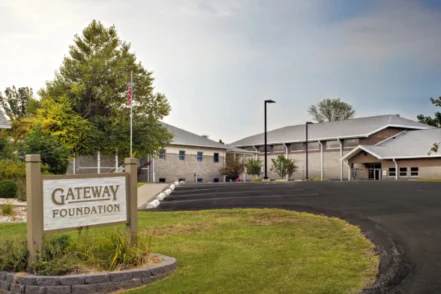 Illinois
IllinoisGateway Foundation Carbondale
1080 East Park Street Carbondale, Illinois 62901
-
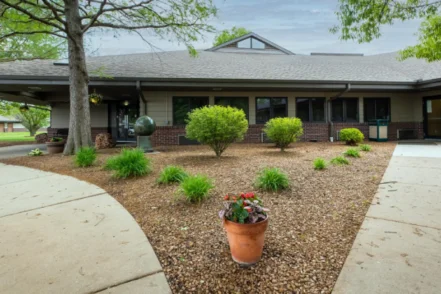 Illinois
IllinoisGateway Foundation Caseyville
600 West Lincoln Avenue Caseyville, Illinois 62232
-
 Illinois
IllinoisFootprints To Recovery
411 West River Road, Suite 309 Elgin, Illinois 60123
-
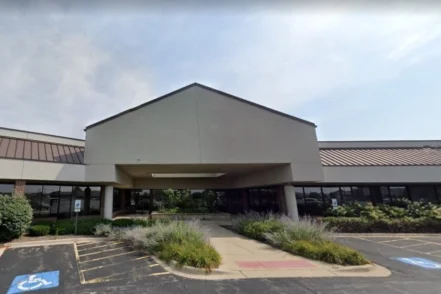 Illinois
IllinoisMathers Recovery Elgin
420 Airport Rd, Suite C Elgin, Illinois 60123
-
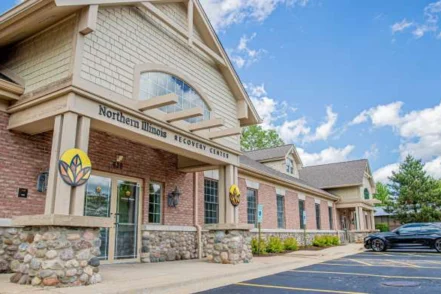 Illinois
IllinoisNorthern Illinois Recovery Center
620 N State Rte 31 Crystal Lake, Illinois 60012
-
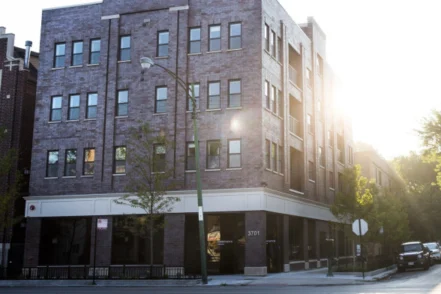 Illinois
IllinoisRosecrance Lakeview
3701 N. Ashland Ave Chicago, Illinois 60613
-
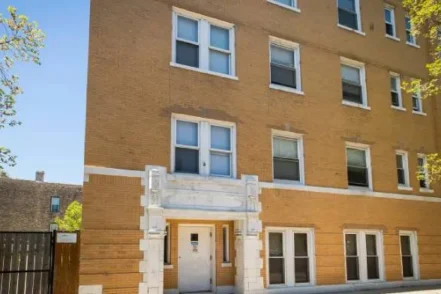 Illinois
IllinoisGateway Foundation Kedzie Recovery Home
1706 North Kedzie Avenue Chicago, Illinois 60647
-
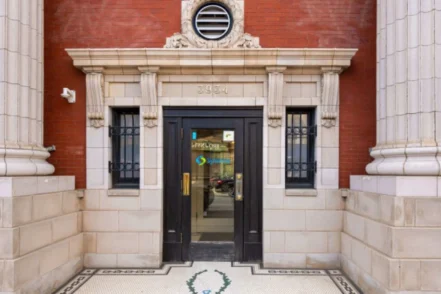 Illinois
IllinoisSymetria Recovery Lakeview
3934 North Lincoln Avenue Chicago, Illinois 60613
-
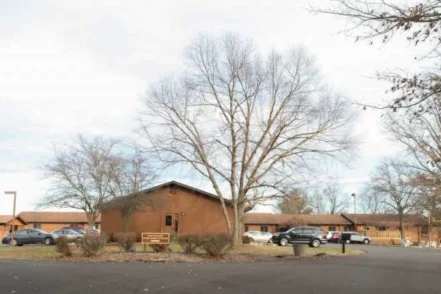 Illinois
IllinoisCenterstone Fellowship House Campus
800 North Main Street Anna, Illinois 62906
-
 Illinois
IllinoisHazelden Betty Ford Foundation
867 North Dearborn Street Chicago, Illinois 60610
-
 Illinois
IllinoisPreferred Family Healthcare Recovery Resources
428 South 36th Street Quincy, Illinois 62301
-
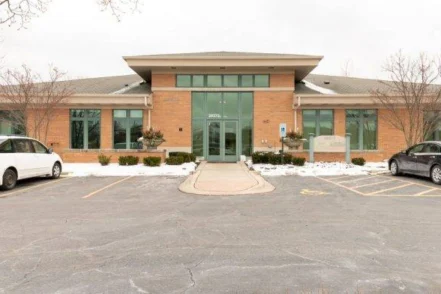 Illinois
IllinoisSymetria Recovery Naperville Warrenville
28373 Davis Parkway, Suite 500 Warrenville, Illinois 60555
-
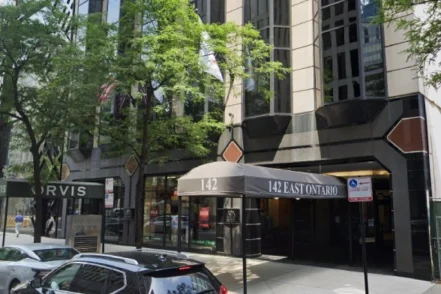 Illinois
IllinoisPositive Sobriety Institute
680 N Lake Shore Dr, Suite 800 Chicago, Illinois 60611
-
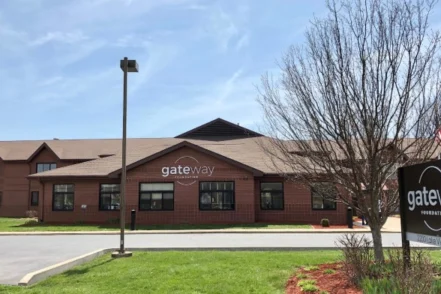 Illinois
IllinoisGateway Foundation
2200 Lake Victoria Drive Springfield, Illinois 62703
-
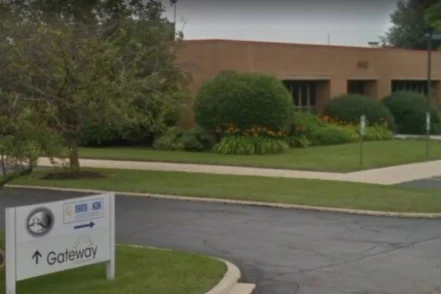 Illinois
IllinoisGateway Foundation Mercy Lane
400 Mercy Lane Aurora, Illinois 60506
Other Popular Illinois Cities
Browse by Illinois cities
- Cairo
- Calumet City
- Canton
- Carbondale
- Carlinville
- Carlyle
- Carmi
- Carol Stream
- Carpentersville
- Carrollton
- Carterville
- Carthage
- Cary
- Caseyville
- Centralia
- Champaign
- Charleston
- Chester
- Chicago
- Chicago Heights
- Chicago Ridge
- Chillicothe
- Cicero
- Cissna Park
- Clifton
- Clinton
- Collinsville
- Crest Hill
- Crete
- Crystal Lake




